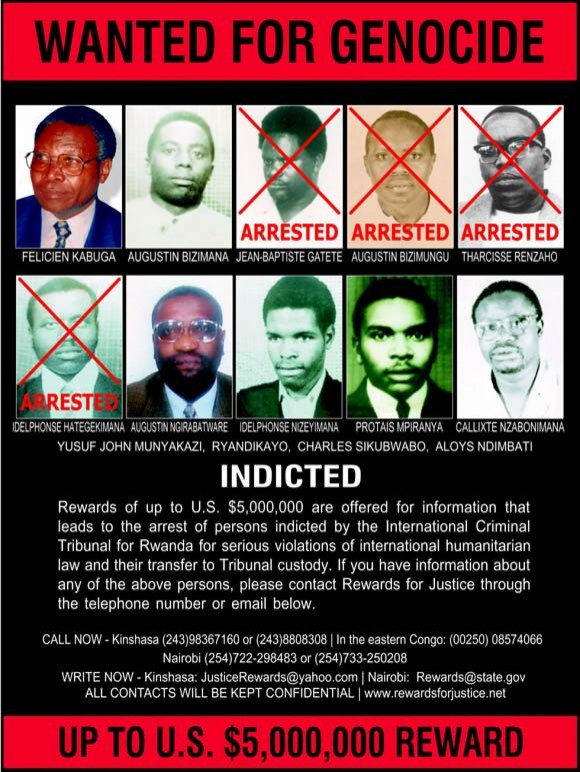Mother and son convicted of genocide by international court

The United Nations court on Rwanda has convicted six people of genocide.
Pauline Nyiramasuhuk, who was the Rwandan government's minister of family and women's affairs during the 1994 ethnic war, was found guilty by the International Criminal Tribunal for Rwanda of charges of direct, public incitement to commit genocide and of rape as part of a widespread and systematic attack against a civilian population on political, ethnic and racial grounds.
She is the first woman convicted of genocide by the tribunal.
Also convicted is Nyiramasuhuk's son, Arsene Shalom Ntahobali. Ntahobali was a militia leader during the genocide. He was charged with crimes against humanity, which included rape and war crimes. Both Ntahobali and his mother have been sentenced to life in prison.
The court alleged that the mother and son helped to organize the massacres in the Butare region of Rwanda. They were both implicit in the abduction of hundreds of Tutsis who would eventually be executed. Both have been in the court's custody since 2001.
Many were physically assaulted, raped and taken away to various places in Butare, where they were killed. During the course of these repeated attacks on vulnerable civilians, both Nyiramasuhuko and Ntahobali ordered killings. They also ordered rapes. Ntahobali further committed rapes and Nyiramasuhuko aided and abetted rapes, said the judgment read out by presiding Judge William Sekule.
Along with Nyiramasuhuk, four other local government officials were indicted of genocide. They will serve between 25 years to life in prison.
The 1994 genocide in Rwanda saw a 100-day government-led ethnic cleansing offensive against the Tutsi people. Around 800,000 people were killed.
The International Criminal Tribunal for Rwanda was specially established by the United Nations in November, 1994.
© Copyright IBTimes 2025. All rights reserved.





















